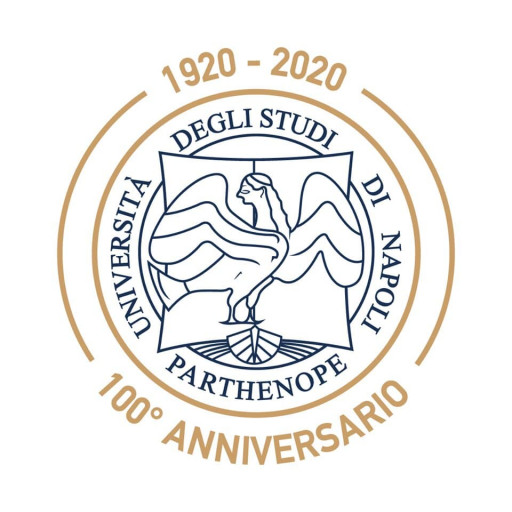Photos of university / #uniofeastanglia
Description
Blade Runner, Memento, The Matrix: many films illustrate philosophical themes and problems. Can film do more and actually do philosophy? Can cinema argue as well as show? And what can philosophy bring to the study of film, to our understanding of the practise of film-making, to films as texts? These kinds of question can be explored in the BA in Philosophy and Film Studies, which offers an interdisciplinary study of two subjects that are deeply interlinked, at least in the manner in which they are taught by staff in the Schools of Philosophy and Film & TV Studies. Students engage fully in the disciplines of philosophy and film studies.
Year Abroad
One semester can be spent in Finland, Germany or Greece on the ERASMUS exchange programme.
Detailed Course Facts
Application deadline You are advised to apply as early as possible Tuition fee- EUR 10550 Year (EEA)
- EUR 14400 Year (Non-EEA)
UK/EU Students: £9,000. International Students: £12,300
Start date September 2015 Credits (ECTS) 180 ECTSDuration full-time 36 months Languages Take an IELTS test
- English
Course Content
Year 1
This year includes introductions to philosophical reasoning and to the history of the subject via major modern philosophers, to methods and issues in studying films and to the history of modern cinema. You take six compulsory modules, three from each discipline:
- Classic Readings in Philosophy
- Reasoning and Logic
- Modern Readings in Philosophy
- Studies in Film History
- Analysing Film and Television
- What is Film History?
Year 2
You must take the compulsory film module Film Theory plus another second-level module from a list which presently includes options in the economics of film and television, other film modules as well as modules in Literature and Politics for example. And you must take any two second-level philosophy modules, from a wide range of options including Aesthetics, Mind, Religion, Ethics, and many historical modules. Film & Literature as Philosophy must be taken either in the second year or the third year. In addition, you are entitled to two free choice modules, which can be chosen from any eligible module within the University. You may choose to focus, doing more philosophy or film modules, or to broaden your interests by taking modules from another humanity, a social science or even a science (subject to satisying any entry requirements). Or you can take a language or a more practical career-based module, in preparation for employment after university.
Year 3
You must take any two level 3 philosophy modules; again these are drawn from a wide range of options. And you must take two level 3 film modules, from a list that might include Ethnicity in American Film, Genre and Gender, and Contemporary Japanese Visual Media. Some students choose the dissertation module (in either philosophy or film) in the final year: the 10,000-word dissertation, on a philosophical or film studies subject, or interdisciplinary between the two, is prepared under the guidance of a tutor. (This is recommended for students thinking of going on to do postgraduate study).
Teaching and Assessment
This degree is taught jointly by the School of Philosophy and the School of Film and Television Studies.
Philosophy thrives on discussion and the exchange of views. Only some parts of it can be done in large lecture classes. So we do have some of thosebut when we do, they are designed to set you thinking, not to tell you facts. It's about learning how to think, and how to express what you think, not learning what to say. All the units have small group seminars or tutorials in which you work on the problems with a member of staff.
During the year your written work is marked by the seminar tutors. They give you comments and feedback to help you improve. Time is set aside for you to call on the lecturers to discuss your work or to get individual guidance.
Assessment is by a mixture of essays, longer projects or dissertation, and examinations. Each unit has its own mix of assessment. The degree result is calculated from the results of all the units in your final two years. You can find more information on the modules available on this course on the 'Course Profile' page.
English Language Requirements
IELTS band : 6.5 TOEFL iBT® test : 88
To study at this university, you have to speak English. We advice you to
take an IELTS test. More About IELTSRequirements
- A Level:
- International Baccalaureate:
- Scottish Highers:
- Scottish Advanced Highers:
- Irish Leaving Certificate:
- Access Course:
- HND:
- European Baccalaureate:
Students for whom English is a Foreign language
We welcome applications from students from all academic backgrounds. We require evidence of proficiency in English (including writing, speaking, listening and reading). Recognised English Language qualifications include:
- IELTS: 6.5 overall (minimum 6.0 in Reading and Writing with no less than 5.5 in any component)
- TOEFL: Internet-based score of 88 overall (minimum 20 in Reading and Speaking components, 19 in Writing component and 17 in Listening components.
- PTE: 62 overall (minimum 55 in Reading and Writing components with no less than 51 in any component).
If you do not meet the University's entry requirements, our INTO Language Learning Centre offers a range of university preparation courses to help you develop the high level of academic and English skills necessary for successful undergraduate study.
Interviews
The School does not currently interview all applicants for undergraduate entry as standard, however we may interview mature students, those returning to study or applicants with alternative qualifications. All applicants who are made an offer are given the opportunity to meet with an academic on a Visit Day in order to gain a deeper insight into the course(s) you have applied for.
Gap Year
We welcome applications for deferred entry, believing that a year between school and university can be of substantial benefit. You are advised to indicate your reason for wishing to defer entry and may wish to contact the appropriate Admissions Office directly to discuss this further.
Special Entry Requirements
There are no specific subjects that are required in order to take up Philosophy, and it is not necessary to have studied any Philosophy before. We are keen to see some arts or humanities subjects that involve academic work, including writing essays and reading texts. Good results in Mathematics, Music or Latin are also an indicator for doing well in Philosophy - because of the kind of rigour which they instil.
Intakes
The School's annual intake is in September of each year.
Alternative Qualifications
If you have alternative qualifications that have not been mentioned above, then please contact university directly for further information.
GCSE Offer
Students are required to have GCSE Mathematics and GCSE English Language at grade C or above.
Assessment
For the majority of candidates the most important factors in assessing the application will be past and future achievement in examinations, academic interest in the subject being applied for, personal interest and extra-curricular activities and the confidential reference.
We consider applicants as individuals and accept students from a very wide range of educational backgrounds and spend time considering your application in order to reach an informed decision relating to your application. Typical offers are indicated above. Please note, there may be additional subject entry requirements specific to individual degree courses.
Work Experience
No work experience is required.
Want to improve your English level for admission?
Prepare for the program requirements with English Online by the British Council.
- ✔️ Flexible study schedule
- ✔️ Experienced teachers
- ✔️ Certificate upon completion
📘 Recommended for students with an IELTS level of 6.0 or below.
Related Scholarships*
- Academic Excellence Scholarship
"The Academic Excellence Scholarship can provide up to a 50 % reduction in tuition per semester. These scholarships will be renewed if the student maintains superior academic performance during each semester of their 3-year Bachelor programme. The scholarship will be directly applied to the student’s tuition fees."
- Access Bursary
Bursary for UK students all subjects where the variable tuition fee rate is payable.
- Alumni Bursary
Alumni Bursary for UK Undergraduate students
* The scholarships shown on this page are suggestions first and foremost. They could be offered by other organisations than University of East Anglia.
Funding
The University will be charging International students £11,700.00 for all full time School of Philosophy undergraduate programmes which start in 2012.







